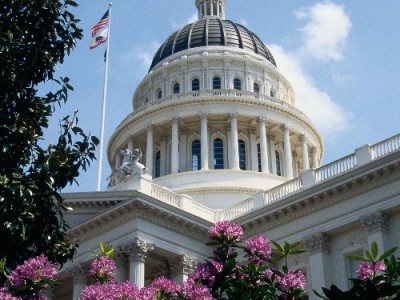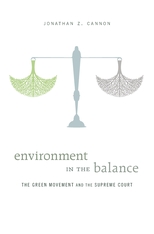Supreme Court
Big Win For Clean Technology In The Supreme Court Today
Court validates federal rule to encourage more efficient electricy usage
The future of a clean electricity grid will require more decentralization based on clean technology, like solar and energy storage. Large industrial customers are investing in these technologies and also signing up to moderate their electricity demand in response to larger grid needs (i.e. reducing usage when electricity becomes expensive and dirty to produce). Smaller …
Continue reading “Big Win For Clean Technology In The Supreme Court Today”
CONTINUE READINGWhy legal challenges to the EPA Clean Power Plan will end up at the Supreme Court
Cross-posted from The Conversation. Even before President Obama announced the Environmental Protection Agency’s (EPA) Clean Power Plan on August 3 to regulate carbon emissions from power plants, there were a number of legal challenges to block the law at its proposal stage – none of them successful. Earlier this year, the DC Circuit Court told …
Continue reading “Why legal challenges to the EPA Clean Power Plan will end up at the Supreme Court”
CONTINUE READINGMichigan v. EPA: Policymaking in the Guise of Statutory Interpretation
In Michigan v. EPA, the majority followed its own policy views, not those in the statute.
The majority opinion by Justice Scalia has gotten most of the attention. Most notably, he wrote that “[o]ne would not say that it is even rational, never mind “appropriate”, to impose billions of dollars in economic costs for a few dollars in health or environmental benefits.” Indeed, “[n]o regulation is ‘appropriate’ if it does significantly …
Continue reading “Michigan v. EPA: Policymaking in the Guise of Statutory Interpretation”
CONTINUE READINGInterpreting Michigan v. EPA
The opinion seems likely to have very limited repercussions.
In bringing the mercury rule to the Supreme Court, industry was hoping for a ruling that EPA had to balance costs and benefits (and could only include benefits relating to mercury). What they got was far less than that. Here, I’d like to address some key questions about the opinion. 1. When does EPA have …
Continue reading “Interpreting Michigan v. EPA”
CONTINUE READINGMercury Rising: The Court Reverses EPA’s Regulation
This was not a great decision for EPA, but it could have been much worse.
The Court has just now decided the Michigan case, involving EPA’s mercury regulation. As Ann Carlson explained in an earlier post, a lot was at stake in the case. The Court ruled 5-4 against EPA. This passage seems to be key to the Court’s reasoning: One would not say that it is even rational, never mind …
Continue reading “Mercury Rising: The Court Reverses EPA’s Regulation”
CONTINUE READINGThe Next Six Months
A half-dozen crucial developments will shape environmental policy for years to come.
The next six months will be unusually important in environmental law. There are six key areas to keep an eye on: 1. The Paris climate talks. The world’s governments meet every year in December as part of continuing negotiations on climate issues. This year’s meeting will be the most critical since Copenhagen, six years ago. The …
Continue reading “The Next Six Months”
CONTINUE READINGJeb, the Pope and Climate Change
Maybe we need to pay more attention to the link between religion and environmentalism.
Jeb Bush’s environmental views seem to be evolving. At a recent speech at Liberty University, he had this to say about environmental protection: “America’s environmental debates, likewise, can be too coldly economical, too sterile of life . . . Christians see in nature and all God’s creatures designs grander than any of man’s own devising, the …
Continue reading “Jeb, the Pope and Climate Change”
CONTINUE READINGHail to the Chief: John Roberts and the WOTUS Rule
Roberts virtually bemoaned the lack of a rulemaking. Now he’s got what he wanted.
The government issued a long-awaited Waters of the United States rule (WOTUS for short). No doubt there will be much gnashing of teeth about the issuance of the rule — a very safe bet since the gnashers of teeth got going long before the rule was actually issued. But one person who should be happy …
Continue reading “Hail to the Chief: John Roberts and the WOTUS Rule”
CONTINUE READINGDistrust of Congress (And Why It Matters)
It’s easy to joke about Congress’s public ill-repute, but it’s a serious problem.
A recent poll shows that public approval of Congress is still in the basement (though perhaps not flat on the floor, as it was before). This graph shows the trends: But this poll on public “approval” doesn’t tell the whole story. Here’s one that asks instead whether Americans have confidence in key institutions: The configurations …
Continue reading “Distrust of Congress (And Why It Matters)”
CONTINUE READINGCulture Wars at the Supreme Court
A new book examines the roots of judicial conflict in environmental law.
Views on environmental issues are related to broader culture differences. According to social scientists, environmentalists tend to be egalitarian, believe in harmony with nature, and stress responsibility over autonomy. Their opponents, who are skeptical about regulation, tend to favor traditional hierarchies, believe in human mastery of nature, and stress autonomy over responsibility. Jon Cannon’s new book, Environment …
Continue reading “Culture Wars at the Supreme Court”
CONTINUE READING













